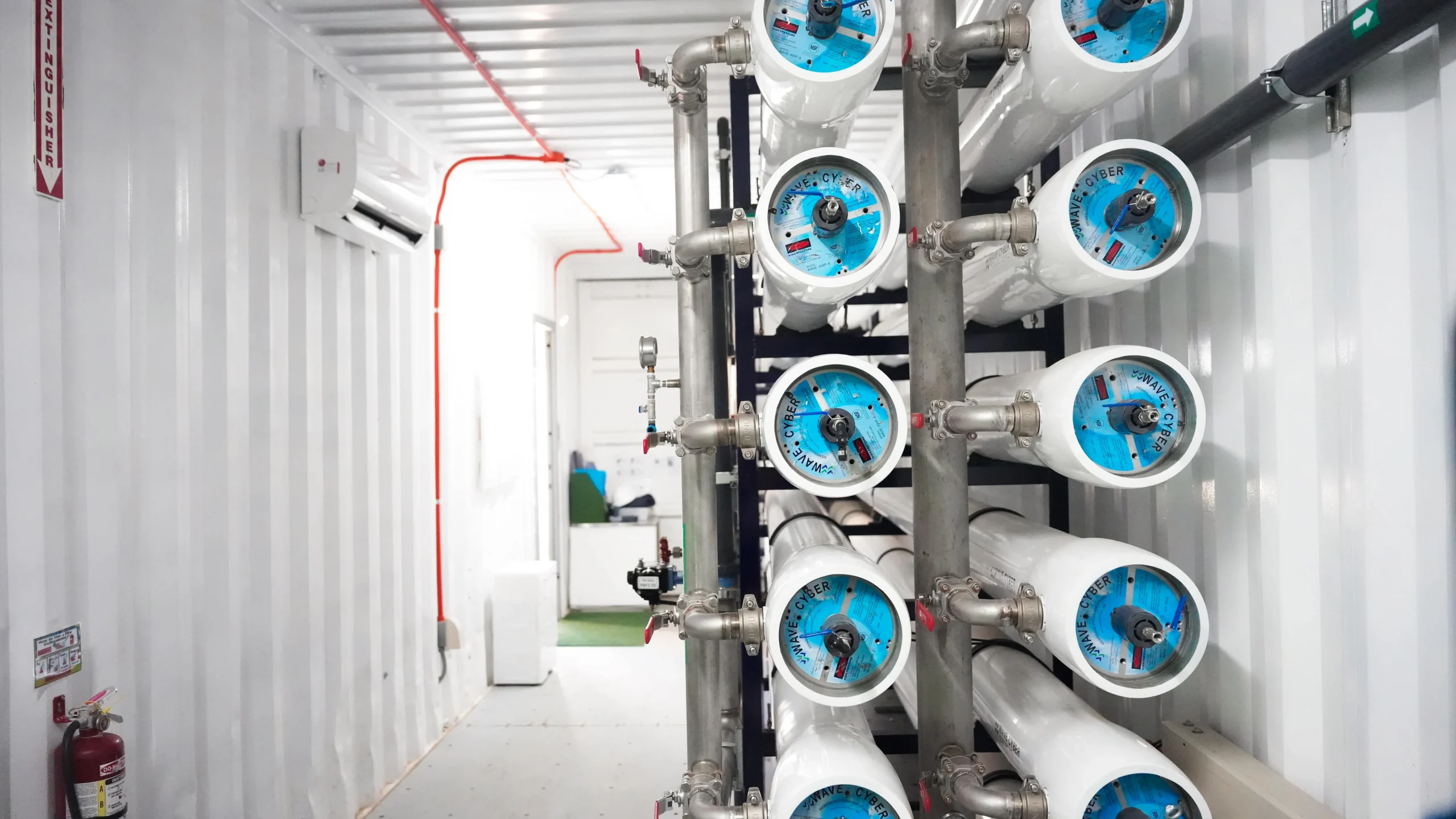
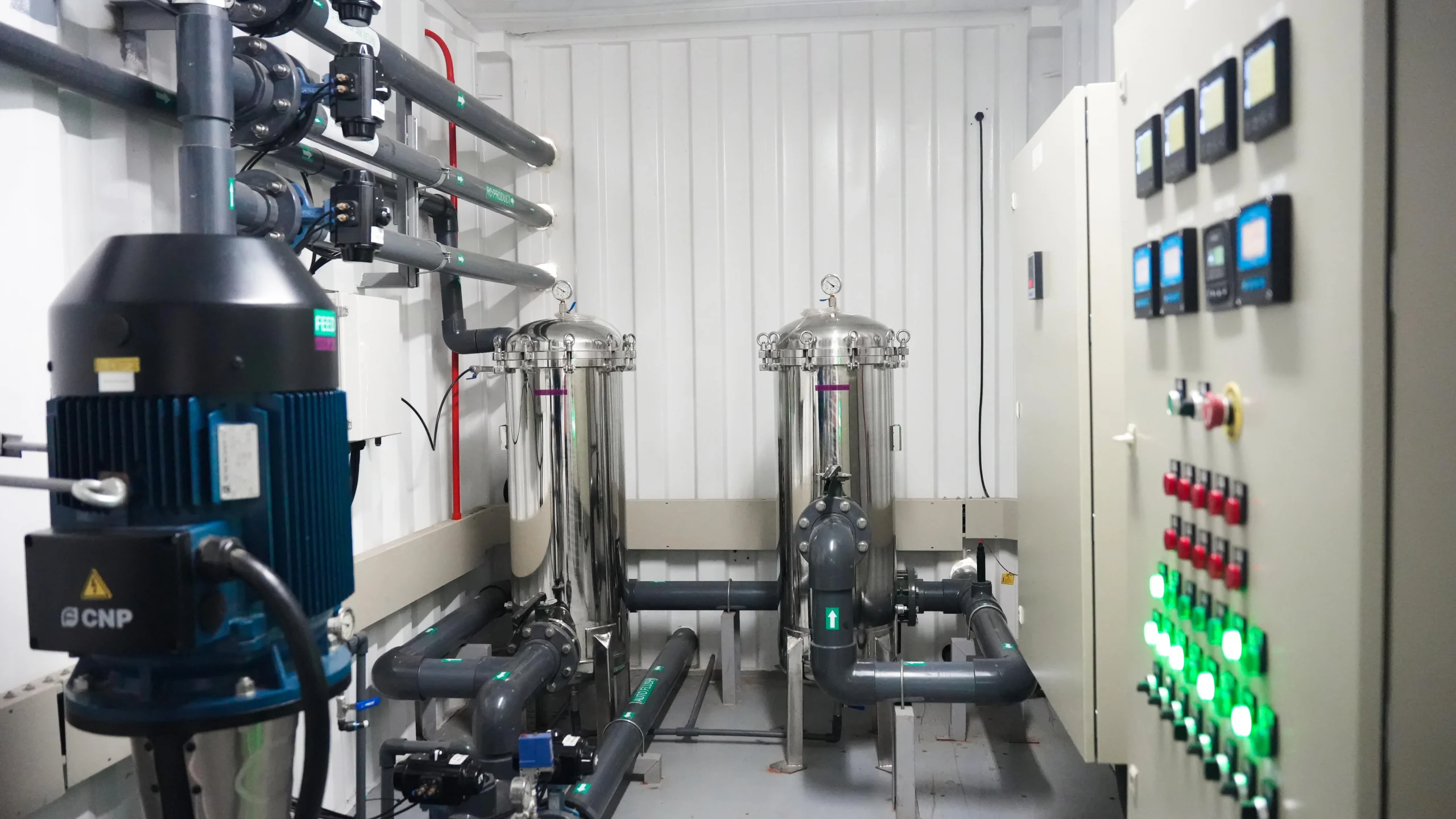
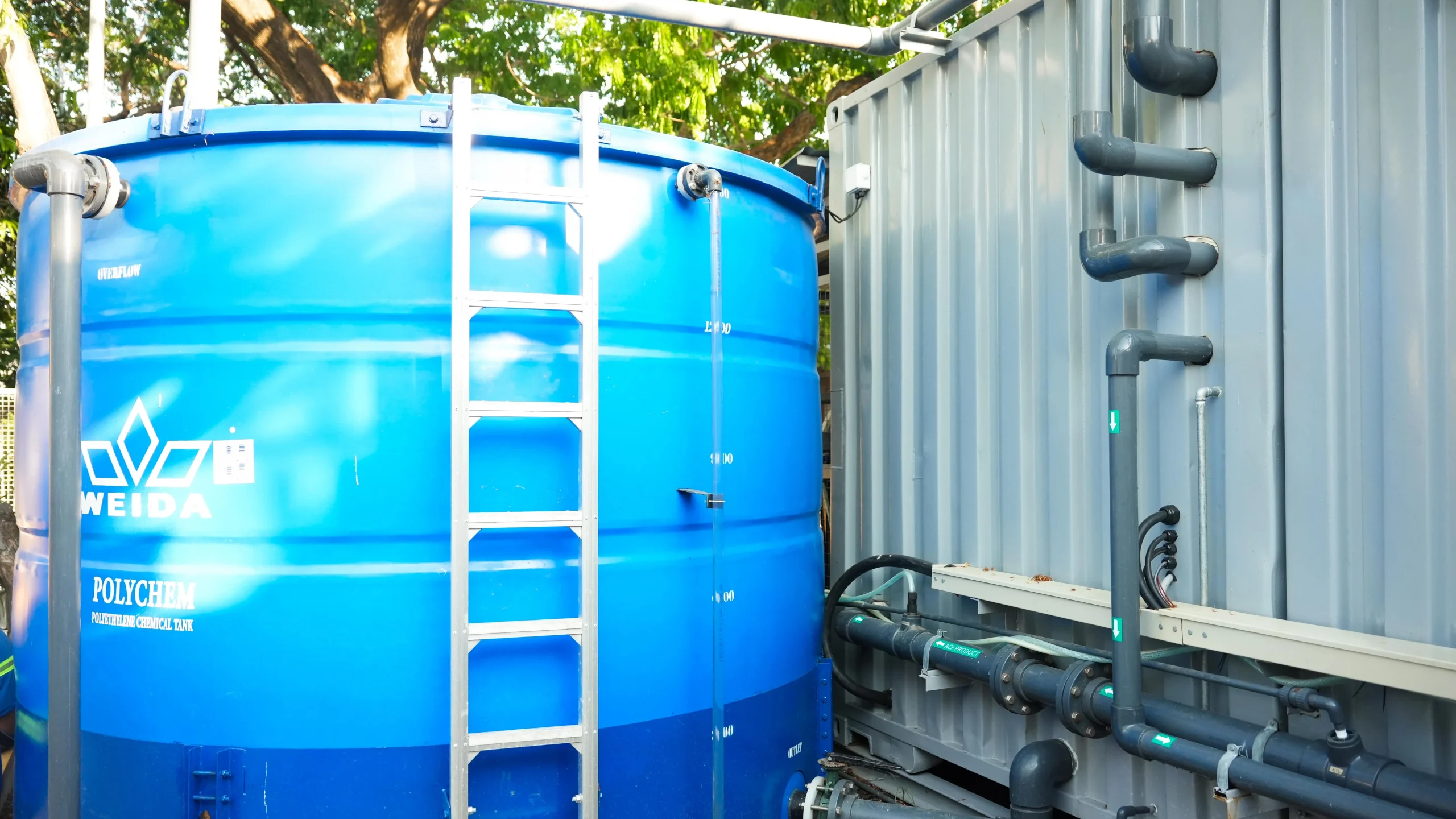
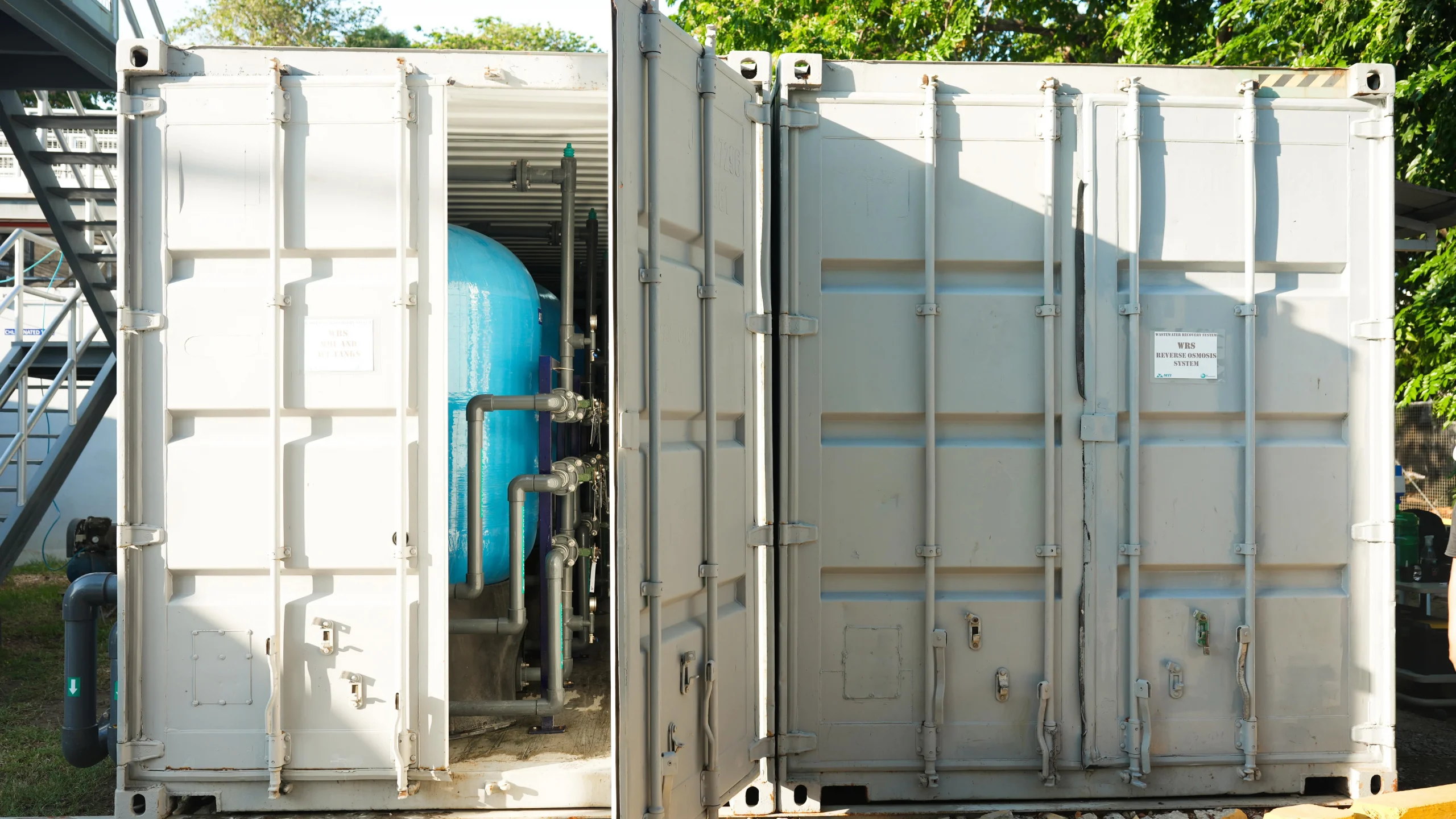
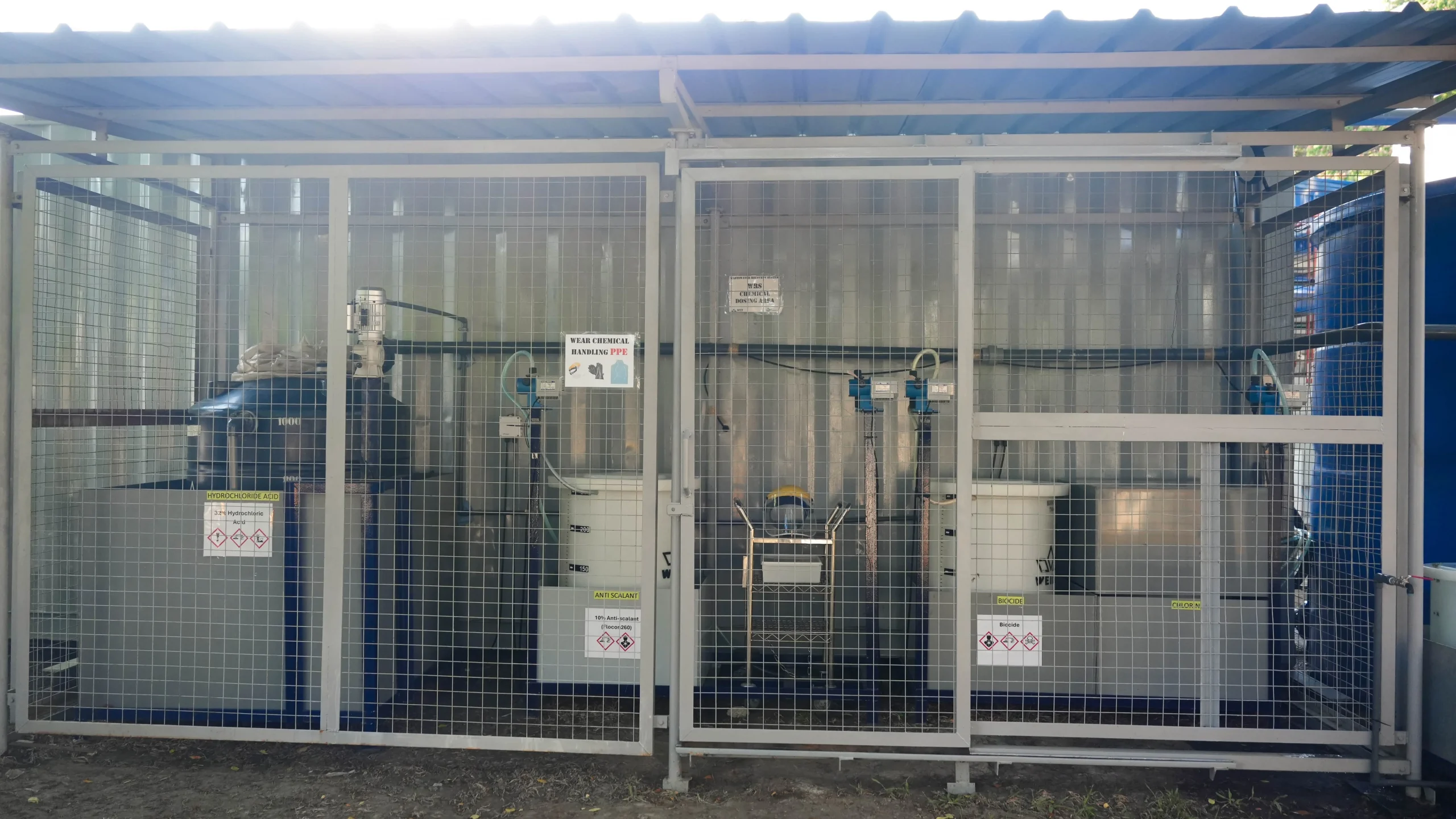
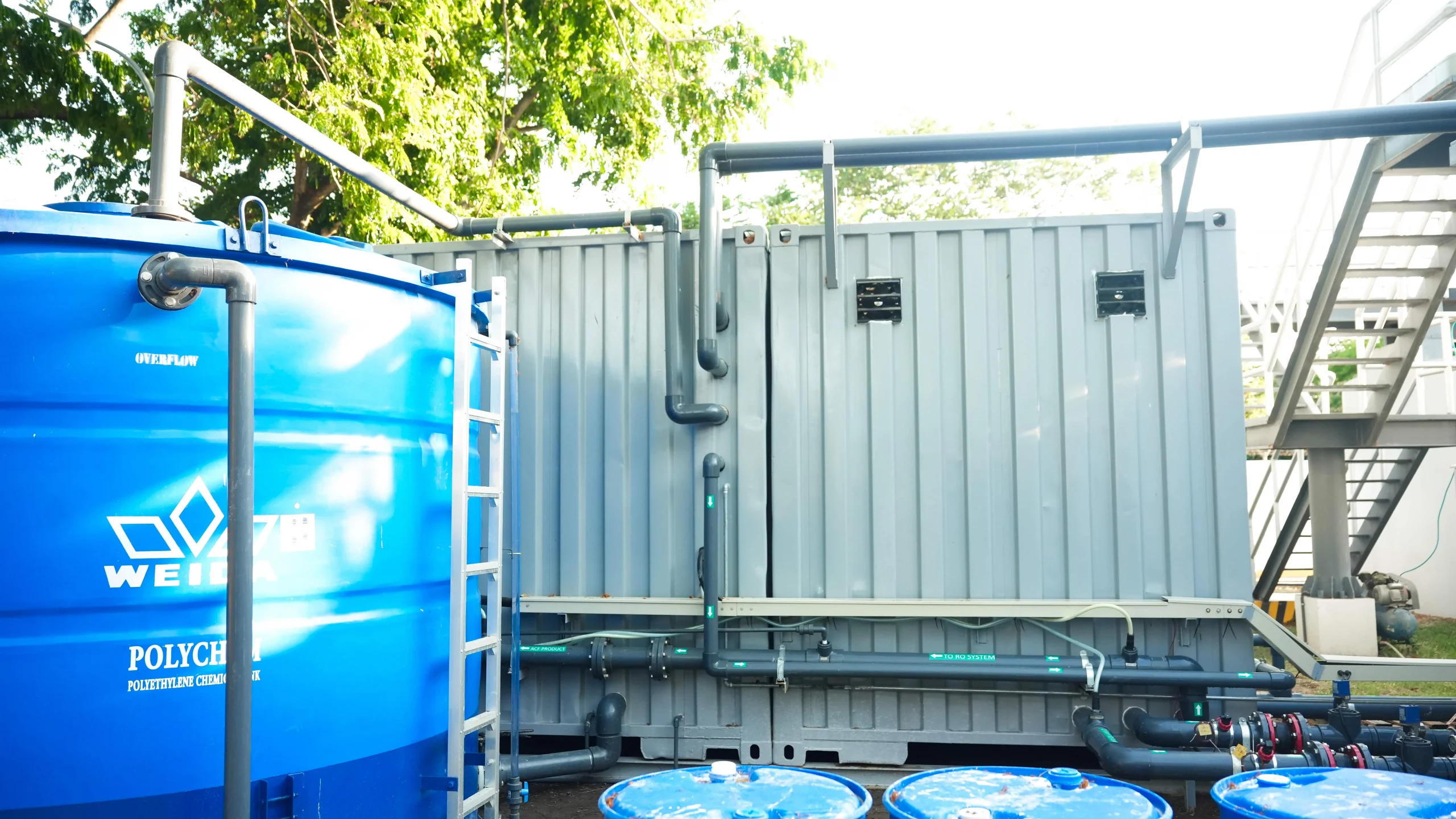
Overview: A leading semiconductor manufacturer in Carmona, Cavite, faced a critical challenge: increasing water demand combined with stringent environmental regulations and a commitment to achieving Net Zero emissions by 2040. With limited access to local water sources and lengthy permitting processes for new deep wells, the company sought a cost-effective and sustainable solution to meet its water needs while adhering to environmental goals.
CHALLENGES
Solution Provided: To address these challenges, a compact and CONTAINERIZED Water Recycling System (WRS) was implemented by MTI. The system, capable of processing 150 gallons per minute, utilized a single-pass, two-stage Reverse Osmosis (RO) process with Multi-Media Filtration (MMF) and Activated Carbon Filtration (ACF) as pre-treatment stages.
KEY FEATURES
RESULTS
This case study highlights the successful implementation of an innovative and sustainable water recycling solution that not only met operational needs but also advanced the company’s long-term environmental objectives.

A leading provider of innovative and cost-effective water treatment solutions in the Philippines.